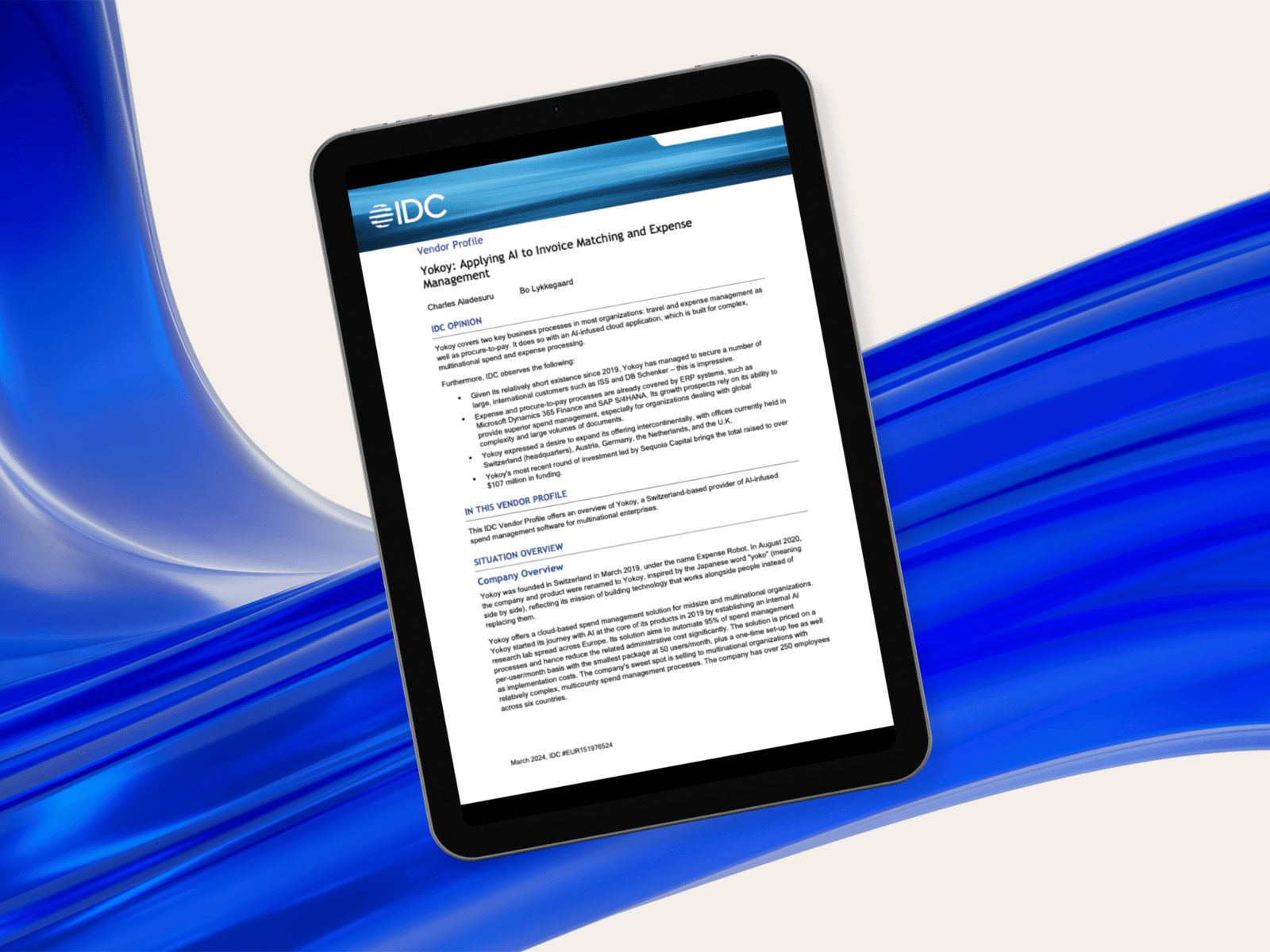Home / Artificial Intelligence as an Assistant to the Chief Financial Officer
Artificial Intelligence as an Assistant to the Chief Financial Officer
- Last updated: June 6, 2023
- AI in finance


Co-founder & CMO, Yokoy
“Artificial intelligence is one of the most important things humanity is working on right now,” says Google CEO Sundar Pichai.
He compares the progress in this field to epoch-making discoveries that, like the harnessing of fire or electricity, have fundamentally changed the living conditions of many people. It is therefore not surprising that Google is fully committed to an “artificial intelligence first” strategy.
In the classical problems of AI research – speech recognition, text recognition and image recognition – enormous progress has been made in the recent past. However, when it comes to the practical application of AI, it is often not about the classic problems; recognition is not enough here, further understanding is also needed.
Text recognition, for example, is no longer a problem; but what is achieved when the mobile phone camera is able to transform the restaurant receipt into a sequence of machine-readable characters?
In order to be able to process this information within the framework of business expenditure management, knowledge is needed not only of the characters, but also of what these characters refer to. The contexts have to be included, the step from text to context is needed.
Big companies like Google, Facebook and Microsoft can pursue an “AI-first” strategy, because they have the human and financial resources to develop customised software for their own business.
Fintech companies such as Yokoy have now packaged AI into software in such a way that even companies without AI expertise can benefit from the technology immediately.
The Yokoy software can, for example, read information out of a restaurant receipt or a supplier invoice that are not even included on the paper itself. All common writing systems and all common languages are supported worldwide.
This solution presents itself as a cloud-based integration platform that enriches expense reports and supplier invoices with information from external data sources, and prepares them for company-internal enterprise resource planning systems (ERP).
It is prepared for the exchange of information with standard business software: Common interfaces (REST API and others) as well as the products of many providers such as SAP, Abacus, Sage and MS Dynamics are supported. The protection of privacy and the security of the data are always guaranteed.
How is AI being used for the future of finance? What is the reality of AI and what will remain as a wish? Delve into the topic with our whitepaper “AI between Wish and Reality”.
White paper
AI Between Wish and Reality
What does artificial intelligence do as a helper to CFOs? How is it changing the economy and which companies are leading the way in using AI? Why are they investing in this technology and what do they get out of it?
In this whitepaper, we not only answer these questions, but also discuss the AI boom, the wish and reality of AI – followed by how trust in AI is playing out.

Simplify your spend management
Related content
If you enjoyed this article, you might find the resources below useful.


